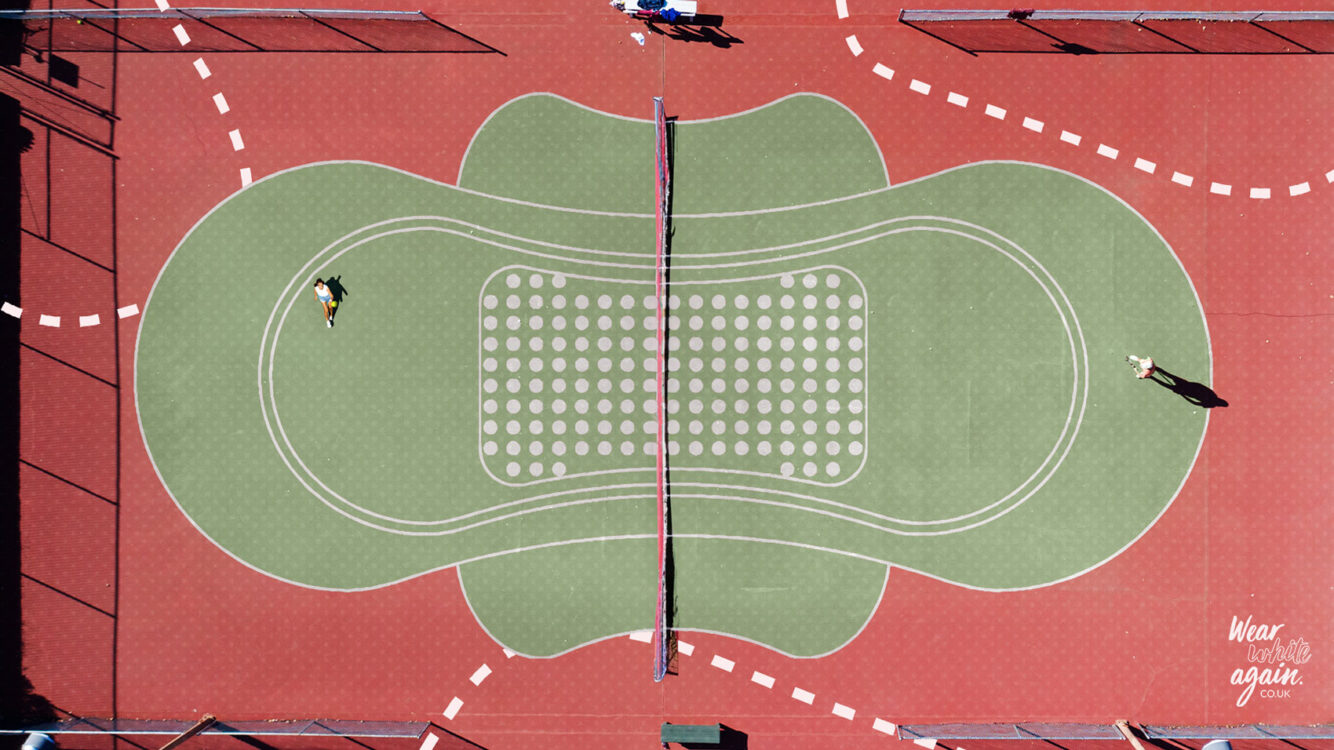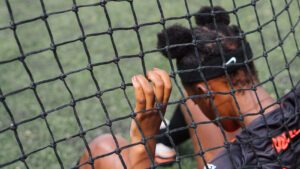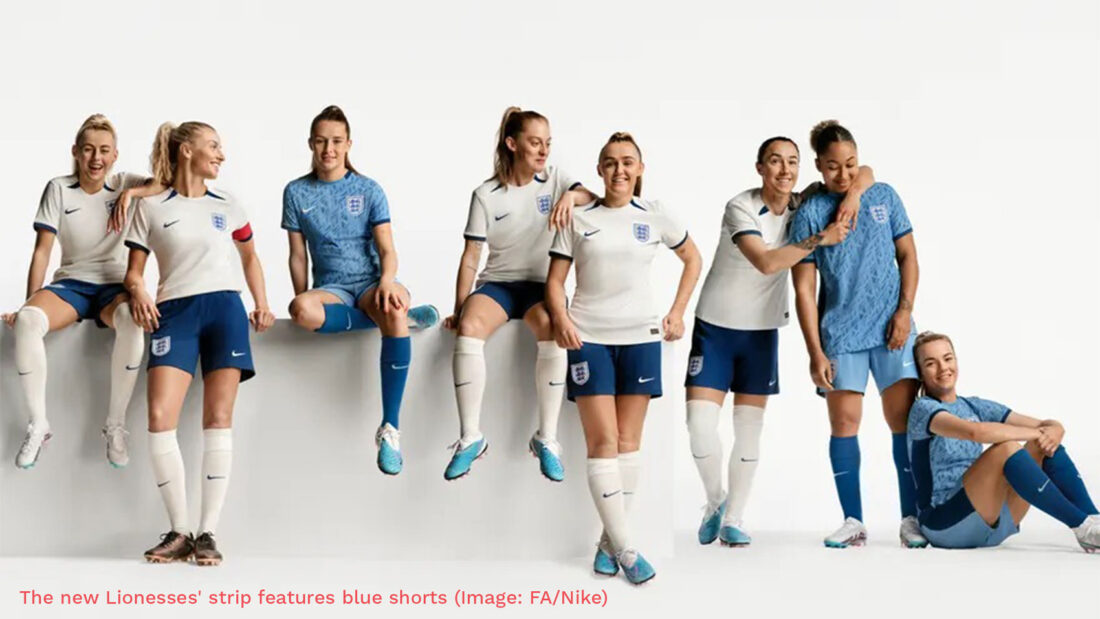
Talking About Periods in Sport
Periods can affect sports and activities in several ways, and individual experiences can vary.
Over the past few years, more and more athletes have opened up the conversation about periods and how it affects them and their sports performances personally. These include (but are not limited to!) Team GB Olympians, Lauren Smith, Hannah Miley and Dina Asher-Smith, as well as Triathlete Emma Pallant-Browne.
Join us as we take a look further into periods in sports and what effect menstruation can have.
How Periods Affect the Possibility of Women Taking Part in Activities
So, how can periods affect the opportunity of taking part in activities?
For some, menstruation can cause physical discomfort. This may include cramps, bloating or fatigue, and make it difficult to participate in activities requiring physical exertion.[1]

Mental health can also be impacted by menstruation, caused by a number of factors such as changes in hormonal levels, increased stress, or anxiety. This can make it difficult to complete everyday life activities.[2]
On top of this, you then have the social stigma surrounding periods, such as jokes surrounding someone ‘PMS-ing’ if they appear to be in a particular mood or mindset.[3]
Unfortunately, this stigma still exists and those menstruating may feel self-conscious or embarrassed, meaning they are less likely to participate in activities with others. In the BBC’s Women’s Sports Survey (2020), they found that 60% felt their performance was affected by their period, however, 40% didn’t feel comfortable discussing their period with their coaches.[4]
Periods in Sport
A study relating to the effects of the menstrual cycle on sports performance found that almost all athletes perceived that menstrual symptoms impacted negatively on sporting performance, with support and treatment varying for individuals. In addition to this, one of the barriers to discussing their concerns was issues related to gender, with some feeling uncomfortable discussing menstruation with male staff members.[5]
In the past year, we’ve seen big changes for professional sports teams in their kit choice. Most notably, the Lionesses gathered extensive media coverage with their request to change the colour of the shorts in their all-white England kit, with many wanting to move away from white for peace of mind throughout games.[6]

[Image 1] England Lionesses 2023/2024 new football kit (Association, T.F. (no date))
Additionally, this year’s Wimbledon dropped the strict all-white dress code, allowing female players to wear dark undershorts if they preferred. [7]
It’s a positive change in attitude as conversations around periods and sports are growing. It’s a step in the right direction towards giving menstruating players the opportunity to be more confident about their period when they’re in the public eye.
How Can We Manage the Impact of Menstruation?
Talk About Periods
Opening up the conversation helps to break down the stigma surrounding menstruation. By increasing the conversation about periods, we normalise the topic – helping more people feel comfortable talking about their periods, creating easier conversations, growing the understanding of different experiences, learning when something isn’t right and seeking help as a result.
For athletes themselves, opening up to teammates, coaches and other athletes about periods experiences can be helpful to raise more awareness. Athletes may have a platform that enables them to become an advocate for change, calling out for more research on the effects of menstruation on athletic performance, or for more support for those who are menstruating during sports.

Improving Period Education
In talking more openly about periods we can help people to gain a better understanding of the menstrual cycle, and certain symptoms or issues to look out for. Furthermore, sharing more information about how periods can affect a person physically, and how this affects performance in sports opens up more visibility of the struggles faced by female athletes. Even symptoms such as cramps or fatigue make it difficult for athletes to compete to their best ability.[8]
Improve Accessibility
Improving accessibility ensures women have access to the resources needed. Whether that’s menstrual products, education, or support. BeBloodyConfident found that 59% of women believe they didn’t receive enough education about periods.[9]

This lack of education throughout the early years of menstruation leads to people not understanding enough about periods and what a ‘normal’ cycle looks like, meaning conditions such as menorrhagia can be left untreated.
By taking steps to manage the impact of menstruation, women can increase their ability to participate in activities that they enjoy.
Treatment for Heavy Menstrual Bleeding (HMB)

HMB is a recognised medical condition called menorrhagia, and it can impact people physically, psychologically, and socially. Be Bloody Confidence aims to raise awareness and give those suffering the confidence to speak out and seek support through treatment.
![]()
Find out more information about Treating Heavy Periods and download our free period toolkit to help track your menstrual cycle and symptoms.
Resources:
[1] – NHS (2019). Overview – Periods. [online] NHS. Available at: https://www.nhs.uk/conditions/periods
[2] www.mind.org.uk. (n.d.). About PMDD. [online] Available at: https://www.mind.org.uk/information-support/types-of-mental-health-problems/premenstrual-dysphoric-disorder-pmdd/about-pmdd/.
[3] – Resnick, A. (2021). What Is Period Stigma? [online] Verywell Mind. Available at: https://www.verywellmind.com/what-is-period-stigma-5116231#:~:text=As%20a%20joke%2C%20period%20stigma.
[4] Lofthouse, A. (2020). ‘Am I sweating or have I leaked?’ Periods, pills & sport. BBC Sport. [online] 12 Aug. Available at: https://www.bbc.co.uk/sport/53705777.
[5] – Findlay, R.J., Macrae, E.H.R., Whyte, I.Y., Easton, C. and Whyte), L.J.F. (née (2020). How the menstrual cycle and menstruation affect sporting performance: experiences and perceptions of elite female rugby players. British Journal of Sports Medicine, [online] 54(18). doi:https://doi.org/10.1136/bjsports-2019-101486.
[6] Taylor, L. (2023). England Lionesses switch to blue shorts after players voice period concerns. The Guardian. [online] 3 Apr. Available at: https://www.theguardian.com/football/2023/apr/03/england-lionesses-new-kit-blue-shorts-player-period-concerns.
[7] – It’s time to talk tennis, periods & Wimbledon whites. (no date.). BBC Sport. [online] Available at: https://www.bbc.co.uk/sport/tennis/61785521. (Accessed: 23 May 2023).
[8] – Periods – how do they affect athletes & why are they monitored? (2019). BBC Sport. [online] 21 May. Available at: https://www.bbc.co.uk/sport/48243310
[9] Survey of 2,000 Women aged 18-55 plus top up 1,000 UK women who have heavy menstrual bleeding during October 20th – 27th 2022. MISC-08708-GBR-EN




